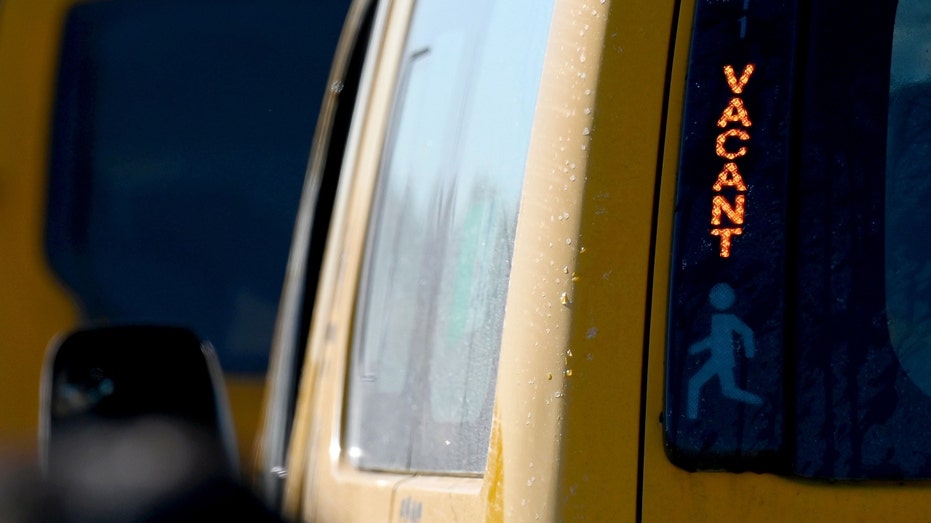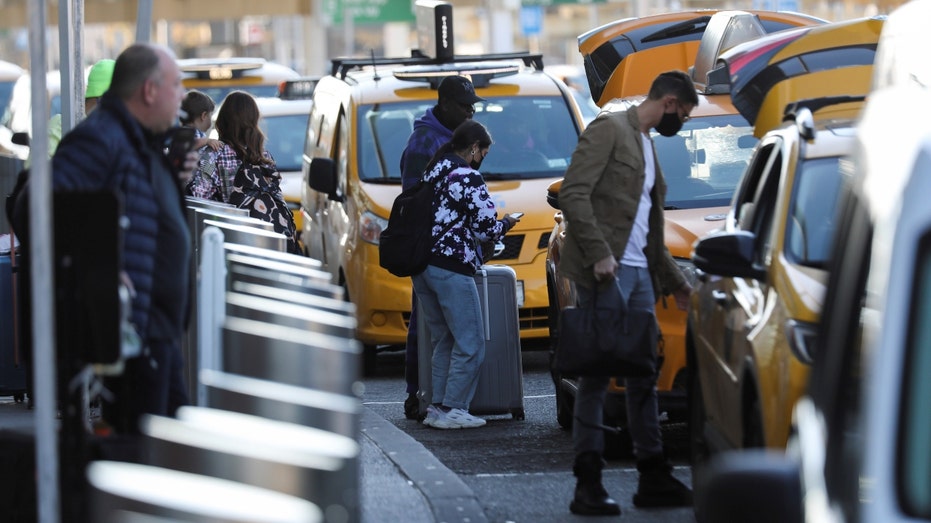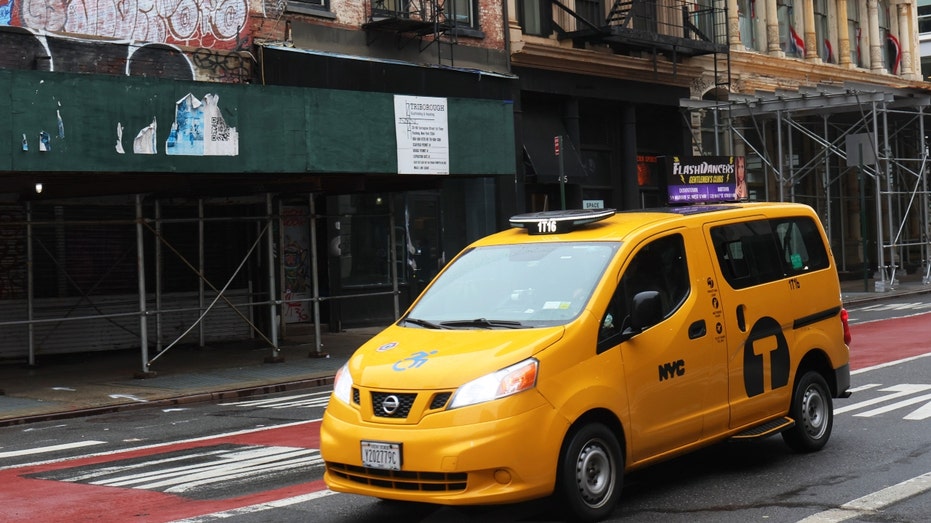NYC passes taxi fare hikes for the first time in a decade
Average taxi fares will rise 23%, with changes expected next month
Amazon-owned Zoox robotaxis test in three US cities
Zoox CEO Aicha Evans discusses their technology and competition in the robotaxi space on 'The Claman Countdown.'
The New York City Taxi and Limousine Commission voted Tuesday in favor of raising taxi fares for the first time in a decade.
Cab drivers have been fighting for rate hikes for years, arguing that the increases would help people survive.
The new prices are expected to go into effect by the end of next month, according to FOX 5 New York.
"Great to have an in-person vote on an overdue raise for both taxi and for-hire vehicle drivers!" TLC Commissioner David Do said in a tweet.
US ORDERS AIRLINES TO PAY OVER $600M IN REFUNDS TO TRAVELERS

A vacant sign is on as yellow cab taxi drivers wait in line at a taxi hold at LaGuardia Airport in New York City on Feb. 4, 2021. (Photo by ANGELA WEISS/AFP via Getty Images / Getty Images)
In a commission meeting, officials approved an average passenger fare increase of 22.9%, with a driver gross revenue increase of 33.3%.
Proponents said that the raises would be comparable to fares in other U.S. cities.
The base fare has changed from $2.50 to $3 and the 50-cent overnight surcharge is going up to $1.

Travelers take taxis at John F. Kennedy International Airport in New York Nov. 8, 2021. (Photo by Wang Ying/Xinhua via Getty Images / Getty Images)
The rush hour surcharge is increasing to $2.50.
GET FOX BUSINESS ON THE GO BY CLICKING HERE
Trips to popular New York City airports will also come with a heftier price.
The flat rate to John F. Kennedy International Airport is jumping to $70, while trips to LaGuardia Airport will have a new surcharge of $5.

A yellow cab taxi is seen on March 24, 2022, in New York City. (Photo by Michael M. Santiago/Getty Images / Getty Images)
The changes impact Uber and Lyft drivers as well, with pay rates increasing by 7% per minute and 24% per mile.
CLICK HERE TO READ MORE ON FOX BUSINESS
Driver expenses have increased significantly over the past decade, and while passenger demand appears to be high, the financial compensation was not there.
"So, we're hoping that the increased financial incentives will allow supply to meet demand better than it currently is," Assistant Commissioner for Policy James DiGiovanni said in a presentation ahead of the vote.





















